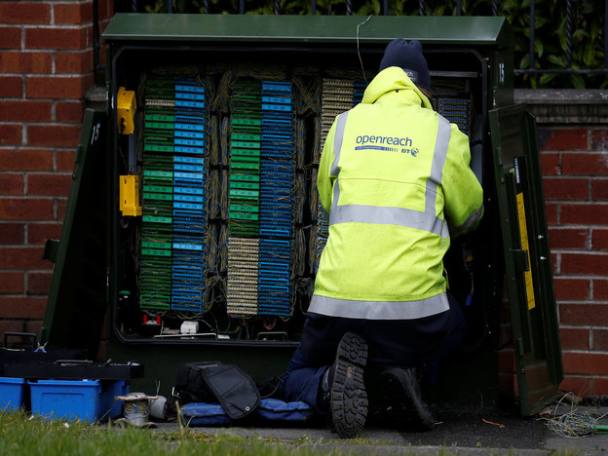Within the next few months, both Vittorio Colao and Gavin Patterson will vacate the top jobs at the UK’s two largest telecoms companies. But while Mr Colao is leaving Vodafone (VOD) in a blaze of glory, having sealed its merger with Liberty Global’s European assets, Mr Patterson will exit the beleaguered BT (BT.A) held in less esteem by investors. It is therefore somewhat ironic that BT’s recent quarterly trading update sparked a far more positive response from the market than Vodafone’s did.
That might be partly because no one is expecting a lot from BT. After several years of turbulence in the global services, wholesale and public sector divisions, an average revenue decline of 6.6 per cent in these three sectors was expected. Meanwhile, Vodafone’s shareholders were unimpressed with a near 5 per cent fall in revenue in its first operating quarter. Foreign exchange headwinds and the adoption of new accounting standards knocked reported numbers, while like-for-like sales growth slowed due to weakness in Spain and the UK.
Messrs Colao and Patterson have presided over very different strategies at their respective companies and, as both bosses head for the exit, it’s clear which has been the most successful. Vodafone is a more stable service provider with a clear focus on Europe, while BT is still floating somewhere between a consumer telecoms giant, an engineering group and an entertainment company (in the latter category it seems to be slowly giving up and recently lost the rights to broadcast several sports in the US).
But where both bosses have both fallen short of expectations is UK communications. Recent research by price comparison site Cable revealed that the UK’s connectivity is significantly poorer than much of Europe, with average broadband speeds less than half of those recorded in Norway, Sweden and Denmark. Now, with the lure of 5G (the highly lucrative fifth generation mobile network) creeping closer, both companies are stepping up investment. In October, they will each begin initial 5G tests and success will allow one to become the first service provider to offer ‘gigabit’ mobile speeds in Britain. BT is currently expected to win the race, but Vodafone owns a greater proportion of the spectrum required to carry the network which could allow it to sign up more customers over the long term. More importantly, the group hasn’t got the same financial distractions as BT, which is struggling against the pressure of a huge pension deficit, a wholesale broadband division and an overambitious dividend. If cash is key in the race for 5G, Vodafone looks likely to come out on top.








